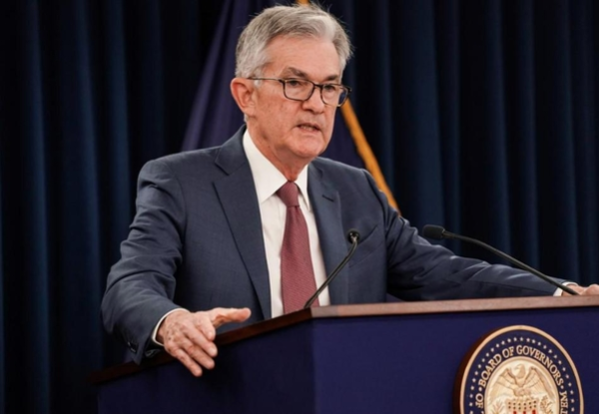Input 2021.01.14 15:13 | Revision 2021.01.14 15:51
15th this year’s first financial committee… “Lee Joo-yeol, stock price remarks are likely to remain in principle due to economic concerns”
As stock prices have soared to the sky from the end of last year, the market is paying attention to the remarks of the governors of the central banks of Korea and the United States. Jerome Powell’s Fed speech is scheduled tonight right now. In the U.S., some Fed officials have already begun to mention the possibility of an early rate hike, and if Chairman Powell’s tapering statement comes out, it is predicted that the stock price trend could be reversed in an instant.
In Korea, the first meeting of the Monetary Policy Direction of the Monetary Policy Committee will be held on the 15th, a day later. As the possibility of freezing the base rate is strong, the market’s attention is focused on Governor Lee Ju-yeol. Unlike government officials who are optimistic, Governor Lee expressed a somewhat pessimistic economic time by referring to’K-shaped recovery’ and’Great Reset’ in the New Year’s speech, so he only expressed concern at the level of principle about the stock price surge. The possibility seems great.

The New York Stock Market, which is continuing its high altitude, has been showing mixed trend this week. Although there are still good news such as the emergence of the new administration of Biden and the anticipation of an economic recovery, investment sentiment is showing a somewhat wait-and-seeing trend as the US Treasury bond yields soar. The US 10-year Treasury bond rate, which jumped to 1.18% during the day before, ended at 1.1% on the 13th (local time), and is said to have settled somewhat, but it is evaluated that it is still showing a high level.
Usually, a rise in government bond yields (falls in government bond prices) reflecting expectations for economic improvement leads to a rise in stock prices, a risky asset, but the situation is different now. This is because the New York Stock Market has risen to an all-time high this year and overheated, which could be a factor that can accelerate the tightening of the Fed. Right now, the president of the Federal Reserve Bank of Atlanta, Rafael Bostic, mentioned the possibility of a rate hike in the second half of next year on the premise of a rapid economic recovery on the 11th (local time).
If Chairman Powell opens the possibility to taper in a lecture scheduled on the 14th (local time), the flow of US stock prices is likely to change direction. On that day, I decided to discuss the average price target system (AIT) and the possibility of inflation in a webinar with Professor Markus Brunermeier of Princeton University.
A day ago, Fed Vice Chairman Clarida emphasized not to raise interest rates until inflation actually reaches 2%, but the market is in an atmosphere where Chairman Powell is putting more weight on his hawkish remarks. The Wall Street Journal (WSJ) said, “If the Fed’s tapering theory becomes visible, the incentive for the dollar to get out of the global stock market is likely to increase.”

Ahead of the first financial committee this year, the domestic financial market is paying more attention to Governor Lee Ju-yeol’s briefing session rather than monetary policy decisions. As the possibility of freezing the standard interest rate within the year is strong, it is considered more important for President Lee to diagnose the economy ahead of the next month’s economic outlook. In particular, as the KOSPI surged to a level above 3200 during the intraday, it is a matter of course how the BOK governor, who is concerned about the’financial imbalance’, judges this situation.
Moreover, Lee has recently shown a distance from the’optimism’ of government officials. The BOK’s New Year’s Address mentioned the polarization following the’K-shaped economic recovery’, and the’Great Reset’ in the new year’s society in the financial sector. The Great Reset came from the point that financial risks this year can be in full swing, so an extraordinary determination to reset everything is needed.
Governor Lee already mentioned the surge in asset prices in December of last year as a factor hindering economic recovery. At a briefing session on the operation status of the price stabilization target held on December 17, he said, “If it used to be, we can expect a’wealth effect’, but now it will not be the same. If the health crisis goes a little further, the degree of inequality will not expand further. “The situation is preventing the recovery of the economy.”
However, unlike the United States, the possibility of President Lee’s hawkish remarks appears to be slim given that the inflation rate is not recovering and employment deterioration continues. As Governor Lee mentioned the possibility of lowering the growth rate on the premise that the current re-proliferation of Corona 19 exceeds winter, the BOK needs to maintain its easing monetary policy stance for a while. However, opinions prevail that they will express concern at the level of principle regarding the increase in asset prices.
Kim Myung-sil, a researcher at Shinhan Financial Investment, said, “It is not a condition that could suggest a change in the position of the BOK governor on monetary policy. There is no clear rebound in neither inflation nor employment. We will express concern about the stock price, but it will remain at the level of principle” did.
